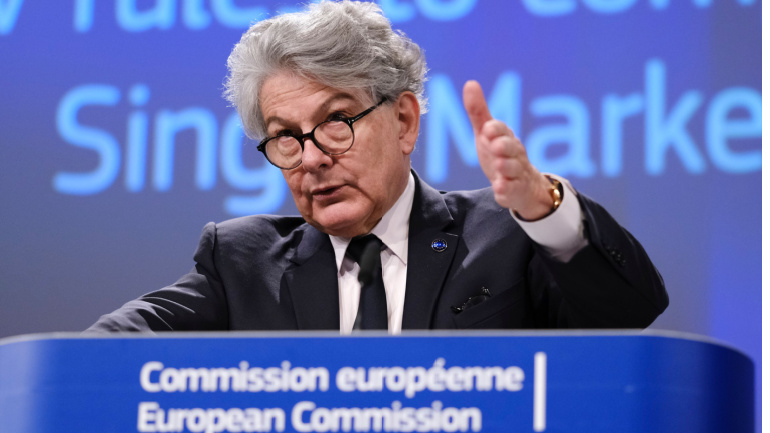Thierry Breton, the Internal Market commissioner of the European Commission, is jazzing up the European telecommunications scene by pushing for a single telecoms market, a change he believes will foster growth, innovation, and allow operators to adapt quickly to rapidly evolving technology. In a recent LinkedIn post, he decries the existing fragmentation within the market – a hurdle that only slows down tech’s frenzied pace.
Breaking down barriers and easing regulations on issues like spectrum acquisition, security, and market consolidation will, according to Breton, attract investors to fund the development of future networks instead of prolonging the lifespan of outdated ones. This comes in response to the feedback received from the EU’s consultation on the future of connectivity and infrastructure in Europe – with the obvious repercussions on the field of investment.
He chooses his words wisely, emphasizing the importance of the scale to fully maximise the potential of the EU-wide telecommunication market. This brings up the question – could he be subtly hinting about the ongoing drama surrounding Saudi Telecom’s planned acquisition of a 9.9% share in Spain’s Telefonica? It’s hard to tell for sure, but his underlying message is clear.
Yet operators remain skeptical about the EU pushing for the single market. The practicality of it is in question, especially when the telecom operators themselves don’t seem too enthusiastic about the idea. The results of the commissioned consultations tell us that operators view cross-border consolidation as a viable option only when their financial situations at a national level show signs of improvement.
The revelations disclose that although the idea of being able to operate on a single 5G core network across the EU will bring about estimated benefits in the range of €200-300 million in the next half-decade, this would need better domestic financial stability.
This leads us to the EU and telecom operator goals not aligning as smoothly as Brussels might have hoped. Telecom operators seem more eager to merge with their local competitors than create Euro super telcos, as a first step anyway. A revision of the European merger control policy is also urged.
Despite these insights, Breton didn’t reveal anything groundbreaking. His persistence on coaxing internet giants to contribute financially to fiber and 5G networks, and emphasis on binary choice between vested interests of Big Telco and Big Tech continues to dominate discussions. However, Breton views this as more than just finance. It is about performance in digital technologies making several strides forward.
We know that gargantuan leaps require large investment capital, and the question of investment lingers on. Projected €200 billion funding gaps could potentially hamper the EU from reaching its 2030 gigabit and 5G connectivity targets. In this scenario, Breton strongly advises member states to investigate all possible solutions, hinting at the possibility of a strategic shift in objectives.
All in all, while the debate surrounding the creation of a single telecoms market continues to paint the European telecoms landscape, it remains to be seen if it is indeed the magic potion to sear the perfect roadmap to a tech-revolutionised future.







